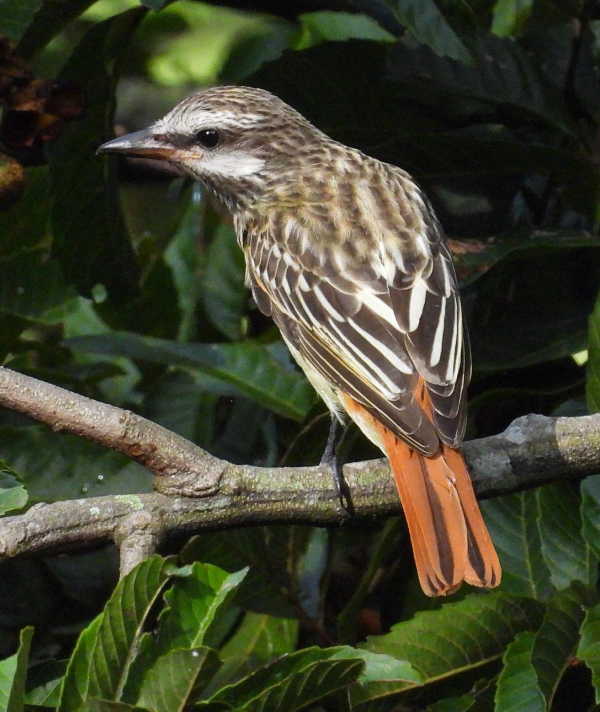 For the second week in a row, another rare Sulphur-bellied Flycatcher was documented in southern Florida (photo by Barry Hammel). |
Astute birders established 2 continental firsts last week, including the First Canadian Record of an Olive-backed Pipit in British Columbia, along with the First American Record of a Marsh Sandpiper in the Lower 48 States, which was also a First State Record for Ohio. A First State Record Arctic Warbler was documented in New York City, and a Fourth State Record Prothonotary Warbler was photographed in Missoula, Montana. A standout sighting in south Florida was another Sulphur-bellied Flycatcher, the second in 2 weeks, and there are more especially rare birds to report:
CANADIAN RECORD
First Canadian Record Olive-backed Pipit – Haida Gwaii, British Columbia
LOWER 48 STATES RECORD
First Lower 48 States American Record Marsh Sandpiper – Lorain, Ohio
STATE & PROVINCIAL RECORDS
First State Record Arctic Warbler – New York, New York
First State Record Marsh Sandpiper – Lorain, Ohio
First Provincial Record Olive-backed Pipit – Haida Gwaii, British Columbia
Fourth State Record Prothonotary Warbler – Missoula, Montana
REALLY RARE BIRDS
Sulphur-bellied Flycatcher (another) – near Naples, Florida
Red-flanked Bluetail – Middleton Island, Gulf of Alaska, Alaska
Little Stint – Victoria, British Columbia
Blackburnian Warbler – Port Angles, Washington
CONTINUING REALLY RARE BIRDS
Steller’s Sea Eagle – Newfoundland
Yellow-headed Caracara – Texas
Mottled Owl – Texas
Common Crane – Alaska
Gray Gull – Florida
Little Stint – California
Eyebrowed Thrush – Alaska
American Flamingos – Florida, Texas
For more information, you can refer to the American Birding Association’s Rare Bird Alert at Rare Bird Alert: October 3, 2025 - American Birding Association (aba.org). Special Thanks to the ABA for permitting us to use the Rare Bird Alert as the basis to prepare this weekly or bi-weekly replay.
You can often find more information about individual rare bird sightings from the ABA state rare bird alert listserves that you can access at Birding News brought to you by American Birding Association - (aba.org) or at ABA Rare Bird Alert | Facebook.
